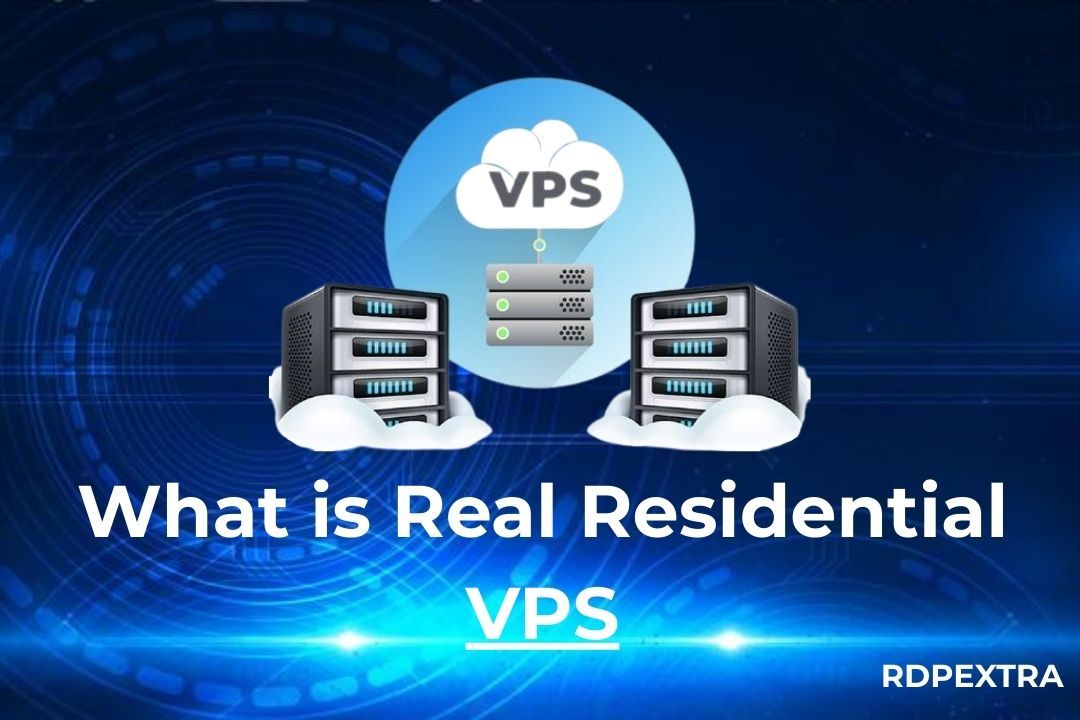

What is a Real Residential VPS? (And Why It’s Changing the Way People Use RDP/VPS in 2025)
If you’ve ever struggled with blocked accounts, unreliable servers, or the constant suspicion that your IP address looks “fake,” you’ve probably come across the term Real Residential VPS Real Residential VPS Explained | VPS vs RDP 2025 Guide.
But what exactly does it mean? And why is this new breed of VPS becoming a favorite for marketers, businesses, and even developers?
Let’s break it down in simple terms — and more importantly, figure out if this solution is right for you.
Real Residential VPS and Why Use It?
A Real Residential VPS is a virtual server that runs on residential IP addresses instead of datacenter IPs. This makes your online activity look like it’s coming from a real home network, giving you higher trust, fewer blocks, and better privacy. It’s especially useful for digital marketers, eCommerce sellers, and businesses that need reliability when managing multiple accounts or testing across regions.
Why Use It?
- Avoid bans and captchas
- Increase account safety
- Enjoy admin-level control with more anonymity
How to Use a Residential VPS (Simple Steps)
- Choose a trusted provider offering real residential IPs.
- Select a location (e.g., USA, EU) based on your needs.
- Access via RDP or remote desktop software.
- Install apps and run your projects securely.
VPS and RDP Made Simple
Before diving into “residential,” let’s get the basics clear:
- VPS (Virtual Private Server): Imagine renting an apartment in a high-rise. You don’t own the entire building, but you do control your own space, with storage, processing power, and flexibility.
- RDP (Remote Desktop Protocol): This gives you remote access to a computer from anywhere. It feels like you’re sitting in front of another machine, even if it’s thousands of miles away.
Traditionally, when people buy a VPS or RDP, the server’s IP address comes from a datacenter — fast and cheap, but often flagged by websites as “non-residential.”
So, What is a Real Residential VPS?
A Real Residential VPS is a VPS that runs on residential IP addresses rather than datacenter IPs.
- Residential IP: Assigned by ISPs (like Comcast, AT&T, Spectrum) to home users. These look “real” because they’re the same type of IP address a household would use.
- Datacenter IP: Assigned by hosting companies or cloud providers. Faster, but easier for websites to detect and block.
This means when you connect to a Residential VPS, websites think a real person in a real home is browsing — not a bot, not a datacenter.
Why Does This Matter?
- Platforms like eCommerce sites, ad networks, or social platforms trust residential IPs more.
- Your activities get fewer CAPTCHA challenges, fewer bans, and higher trust.
- For businesses running sensitive operations, this can make or break campaigns.
Benefits of Using a Real Residential VPS
- Higher Trust & Fewer Blocks
- Websites view you like a real user instead of a server farm.
- Websites view you like a real user instead of a server farm.
- Better Security & Anonymity
- Blends naturally with home traffic, making it safer for account management.
- Blends naturally with home traffic, making it safer for account management.
- Ideal for Specific Professions
- Digital Marketers running multiple campaigns.
- E-commerce sellers are testing across regions.
- Developers need residential testing environments.
- Digital Marketers running multiple campaigns.
- Flexibility vs. VPNs
- Unlike a VPN, a VPS gives you full control — install software, manage tasks, run automation.
- Unlike a VPN, a VPS gives you full control — install software, manage tasks, run automation.
USA Windows VPS/RDP vs. Residential VPS
Here’s a simple comparison:
| Feature | USA Windows VPS/RDP | Real Residential VPS |
|---|---|---|
| IP Type | Datacenter | Residential |
| Speed | Usually faster (datacenter-grade) | Slightly slower (residential lines) |
| Trust Factor | Can get flagged | Higher trust |
| Use-Case | Hosting apps, general RDP | Marketing, account safety, eCommerce |
- 👉 If your focus is speed & hosting apps, choose USA Windows VPS/RDP.
- 👉 If your focus is stability & avoiding bans, choose Residential VPS.
Difference Between RDP and VPS
RDP (Remote Desktop Protocol) is a communication protocol that allows you to connect remotely to another computer or server and control it as if you were sitting in front of it. It provides graphical access to the desktop environment but depends on the host machine’s resources and usually does not grant administrator-level control over the system. RDP is mainly used for remote access, troubleshooting, and managing software on another computer real-residential-vps-explained-vps-vs-rdp-2025-guide.
VPS (Virtual Private Server), on the other hand, is a virtualized server that runs independently on a physical server with dedicated resources like CPU, RAM, and storage. With a VPS, you get full administrative rights and can install and configure your own software, making it a flexible and powerful hosting solution for websites, applications, and databases.
Key Differences:
- Control: VPS gives full admin access; RDP gives remote desktop access.
- Resources: VPS has dedicated resources; RDP shares host machine’s resources.
- Use Case: VPS for hosting and server management; RDP for remote desktop access.
- Performance: VPS delivers consistent performance; RDP depends on host machine quality.
This distinction helps you choose the right solution based on whether you need full server control or just remote access to a machine.
Managed VPS/RDP vs. Admin RDP/VPS
- Managed VPS/RDP: Like hiring a building manager — someone handles setup, monitoring, updates, and support. Perfect if you want to focus on business, not server maintenance.
- Admin RDP/VPS: Full control, maximum flexibility. Great for IT professionals, developers, and power users who know server management.
Common Myths About Residential VPS
- “It’s the same as a datacenter VPS.” Not true — websites can tell the difference.
- “Residential VPS is illegal.” Not if used for legitimate purposes. Issues only arise if used for fraud or abuse.
- “It’s always expensive.” While pricier than datacenter VPS, the trust factor often saves more money in the long run (e.g., fewer lost accounts).
How to Choose the Right Real Residential VPS Provider
Key things to look for:
- Clean residential IP pool (no recycled or blacklisted IPs)
- Strong uptime & speed (some providers oversell bandwidth)
- Support quality (24/7 if mission-critical)
- Location options (USA, EU, Asia, depending on target audience)
👉 Checklist Before You Buy a Residential VPS:
- Do I need residential IPs, or will a datacenter VPS suffice?
- Is the provider transparent about where their IPs come from?
- Is support responsive in case of IP blocking issues?
Conclusion
Understanding the difference between a Real Residential VPS and traditional RDP is essential in 2025 as businesses and individuals seek more reliable, secure, and trusted online environments. A Real Residential VPS offers the power and control of a virtual server combined with the trustworthiness of residential IP addresses, making it ideal for activities requiring higher anonymity and fewer blocks. Meanwhile, RDP provides a simple way to remotely access machines but lacks the full control and dedicated resources of a VPS. Choosing the right solution depends on your specific needs—whether it’s full server management with residential IP trust or straightforward remote desktop access. With this guide, you’re equipped to make an informed decision that supports your goals confidently in today’s digital landscape.
